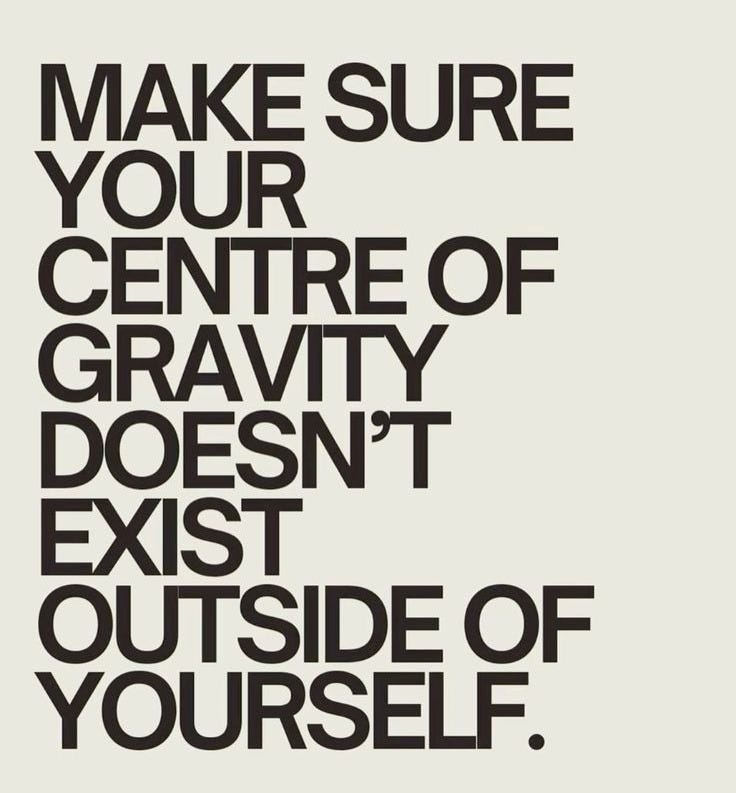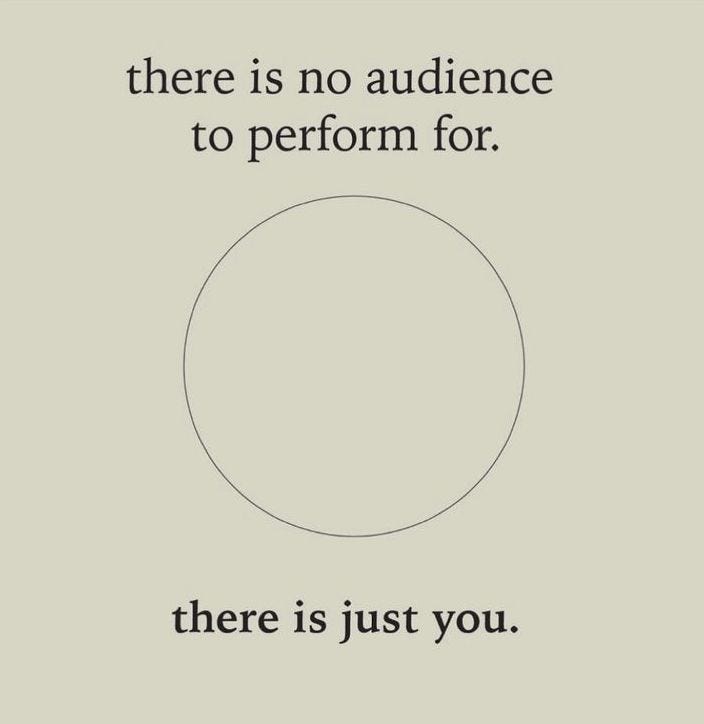don't take it personally, it wasn't even about you
the art of emotional aikido—the spiritual discipline of not absorbing other people’s chaos
Last weekend, something curious happened to my nervous system. One of my Substack essays had what people generously call "gone viral"—hundreds of comments flooding in, most of them thoughtful, encouraging, even moving. Strangers sharing pieces of their stories, others thanking me for putting words to feelings they couldn't articulate. It should have felt like validation, like proof that the vulnerable thing I'd put into the world had found its people.
Instead, I found myself fixated on two comments. Two. Out of hundreds. Two people who had clearly skimmed, misunderstood, and decided to leave something nasty behind. I read them over and over, as if I could decode some hidden truth about myself in their hastily typed dismissals. I began to wonder if they were right, if I was the fraud they seemed to think I was, if all those other kind souls were simply being polite.
This is the human condition in miniature: we are exquisitely calibrated to detect threat, to find the splinter in an otherwise smooth surface. It's what kept our ancestors alive, this hypervigilance to danger, but in our current landscape of digital connection and creative vulnerability, it becomes a form of self-sabotage. We scan for the predator in a room full of friends.
The psychology behind this bias has a name—negativity bias—and it runs deeper than simple pessimism. Our brains are literally wired to give negative experiences more weight than positive ones. It takes roughly five positive interactions to counterbalance one negative one, which means those two dismissive comments carried the psychological weight of ten positive ones. Even with hundreds of supportive responses, my brain was doing fuzzy math, somehow calculating that criticism as more significant than encouragement. Evolution designed us this way because the cost of missing a threat was death, while the cost of missing an opportunity was merely missed dinner.
But here's what I keep learning, over and over, in the most humbling ways: those two people who left sharp words weren't thinking about me at all. They were thinking about themselves—their own frustrations, their own wounds, their own half-digested childhoods bleeding into the comments section of a stranger's essay. People act from their own internal landscapes, and taking their reactions as evidence of who I am is like assuming the person who accidentally bumps into me at the grocery store did it because they've assessed my character and decided I deserved it.
This realization leads me to something I've been mulling over: the idea that we are mirrors for each other, reflecting back not who the other person is, but who we are in that moment. When someone reads vulnerability as weakness, they're showing me their relationship with their own tender places. When someone responds to authenticity with cynicism, they're revealing the armor they've had to build. The person who leaves an encouraging comment is often someone who has done the hard work of healing, who recognizes the courage it takes to be seen.
This is why the company we keep matters so profoundly. If we surround ourselves with people who are still bleeding from unhealed wounds, who haven't learned to tend to their own pain, we'll constantly find ourselves on the receiving end of their projections. They'll hand us their shame and call it feedback. They'll offer us their fears disguised as facts about who we are.
Here’s where the emotional aikido comes in to play. In martial arts, aikido is about redirecting force rather than meeting it head-on. You don't absorb your opponent's energy; you allow it to pass through and around you, using their momentum against them while maintaining your own center. Emotional aikido is similar: it's the graceful refusal to absorb chaos that isn't yours.
This doesn't mean becoming indifferent or hardened. It means developing what I can only describe as serene audacity—the quiet confidence of someone who knows their peace isn't up for negotiation. It means learning to delete and forget the voices that come from unhealed places, not because we're above criticism, but because we can discern the difference between feedback that serves our growth and noise that serves someone else's pain.
I think about this every time I catch myself replaying a harsh word or dwelling on a dismissive glance. I remind myself that the person across from me is fighting battles I know nothing about, carrying stories that have nothing to do with me. Their behavior is data about their inner world, not mine. When I remember this, something shifts. The grip of their words loosens. I can see them as a fellow human struggling with their own ghosts rather than a judge pronouncing verdicts on my worth.
The practice isn't perfect, and it isn't permanent. I still catch my brain scanning for threats, still find myself giving weight to criticism that comes from wounded places. But increasingly, I'm learning to ask different questions: What is this person's relationship with their own vulnerability? What pain might be driving this response? What would it look like to tend to my own reaction without taking on their projection?
There's something liberating about realizing that most people aren't thinking about us nearly as much as we fear they are. They're thinking about their mortgage, their relationship, their own creative struggles, their own versions of those two comments that keep them up at night. We are bit players in each other's stories, which means we have the freedom to write our own script instead of waiting for others to assign us our roles.
This is the gift of emotional aikido: the ability to move through the world without constantly bracing for impact, to offer our authentic selves without armor, knowing that whatever comes back is information about the giver, not the gift. It's the practice of treating others' reactions as weather—sometimes stormy, sometimes sunny, but never a reflection of our fundamental worth.
In the end, training ourselves to take nothing personally isn't about building walls or becoming callous. It's about developing the kind of inner stability that allows us to stay soft in a world that often rewards hardness. It's about remembering that our peace is not a democracy where every voice gets a vote. Some voices deserve our attention, and some deserve only our compassion from a distance.
The people who truly see us, who respond to our authenticity with recognition rather than resistance, who leave thoughtful comments instead of drive-by judgments—these are our people. The rest are simply doing the best they can with the tools they have, which sometimes means they leave sharp things behind them as they move through the world.
Our job isn't to heal them or convince them or absorb their projections. Our job is to keep showing up as ourselves, to keep offering what we have to give, and to remember that the quality of our inner life is not determined by the commentary of strangers. The serene audacity of someone who knows their peace isn't up for negotiation—this is both the practice and the prize.
Talk soon, friends xo
catch up on this week’s posts ICYMI —
NEW? START HERE ツ
For the 600 new souls who found their way here over the weekend, and for anyone wondering what exactly they've stumbled into: I’m Stepfanie—hello, welcome, I’m so glad you’re here ツ
the big, dirty C-word
Quick heads up: this one’s too long for email so ya might wanna open in app ツ
machine yearning
After I published my essay on self-pursuit last month, I started receiving lots of messages from people who wanted to know the practical mechanics of it all. I'd mentioned in passing that I use AI for daily journaling, calling it













Love it. Love you. You're killing it!
I wrote so much of this down very quotable :p love it thank you 💖